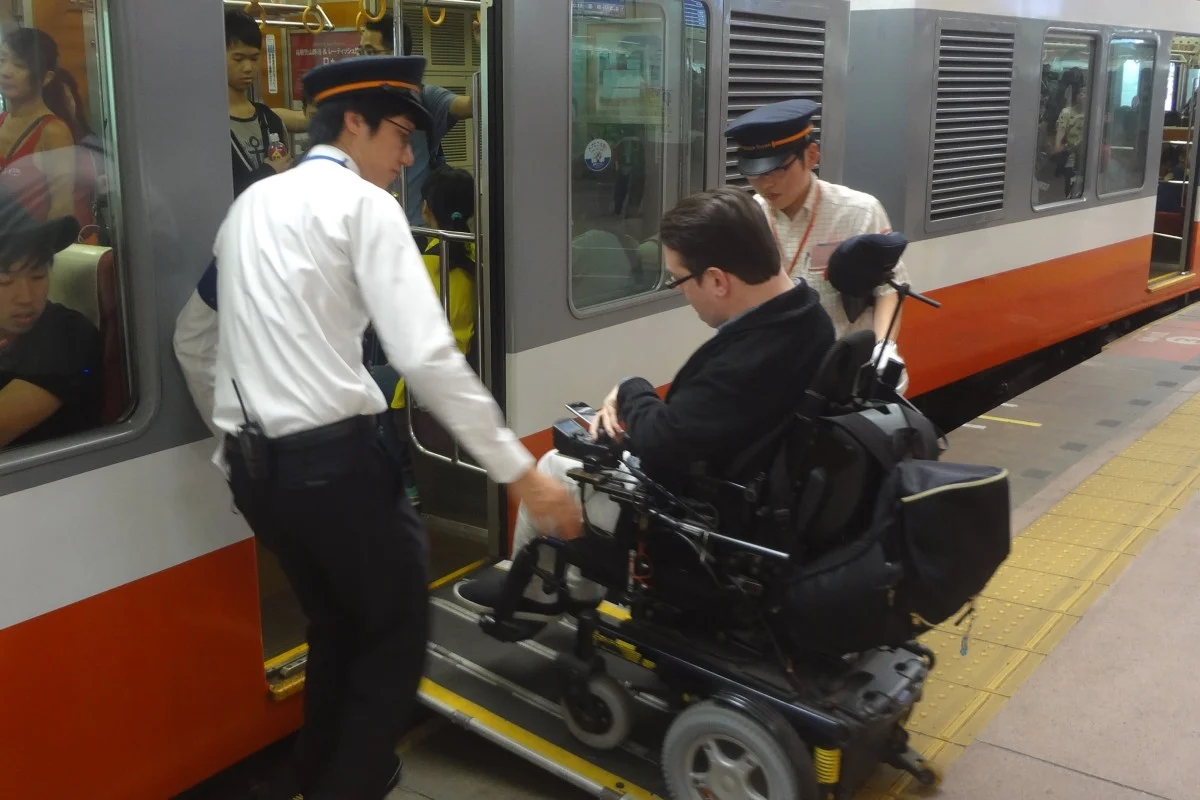Japan has become a popular destination for tourists, thanks in part to its weakened yen. In the first half of this year, 1.3 million travelers from Hong Kong visited Japan, but for many, the language barrier and navigating the country’s extensive transport system can be intimidating. These challenges are even greater for travelers with physical disabilities, dietary restrictions, or specialized accommodation needs.
Canadian expat Josh Grisdale, who has lived in Japan since 2007 and uses an electric wheelchair due to cerebral palsy, understands these difficulties well. He notes that while Japan’s mix of ancient traditions and modern cityscapes can seem inaccessible to visitors with disabilities, there are significant improvements underway. Grisdale, along with the specialist travel company TokudAw, is working to make Japan more inclusive. TokudAw provides a range of services, including certified nursing assistants, international sign language interpreters, and even dialysis arrangements during vacations.
TokudAw was founded in 2020 by Singaporean Wanping Aw, who fell in love with Japan’s seasons and vibrant pop culture. Aw highlights Japan’s progress in accessible travel, such as the Shinkansen bullet trains, which have dedicated carriages for wheelchair users. However, she notes that high-end hotels often have limited accessible rooms, and facilities like separate shower and bath areas for wheelchair users are scarce.
The expertise of specialist travel firms has proven invaluable, as Australian couple Fiona and Ben Teague discovered. After Fiona’s battle with sepsis led to the amputation of her legs and fingers, the couple was unsure about Japan’s accessibility. Despite some minor issues, like a step in a hotel bathroom, they found their trip overwhelmingly positive. Highlights included wheelchair-friendly features, like modified boat steps near Mount Fuji and accommodating public transport staff.
Elderly travelers also benefit from tailored services. Wang-luo Su Lan, an 85-year-old from Taiwan, relied on TokudAw to plan her trip, which included a Mandarin-speaking guide and a special wheelchair path on the Tateyama Kurobe Alpine Route. Despite her limited mobility and language barriers, Su Lan was impressed by the kindness of locals, experiencing Japan’s famed omotenashi hospitality.
Grisdale plans to visit Shirakawa-go, a remote UNESCO World Heritage site, utilizing TokudAw’s services due to limited public transport options. He believes that by enhancing accessibility for tourists, Japan is also improving infrastructure for its own ageing population and families with young children, making the country a more inclusive destination for all.
READ MORE:
